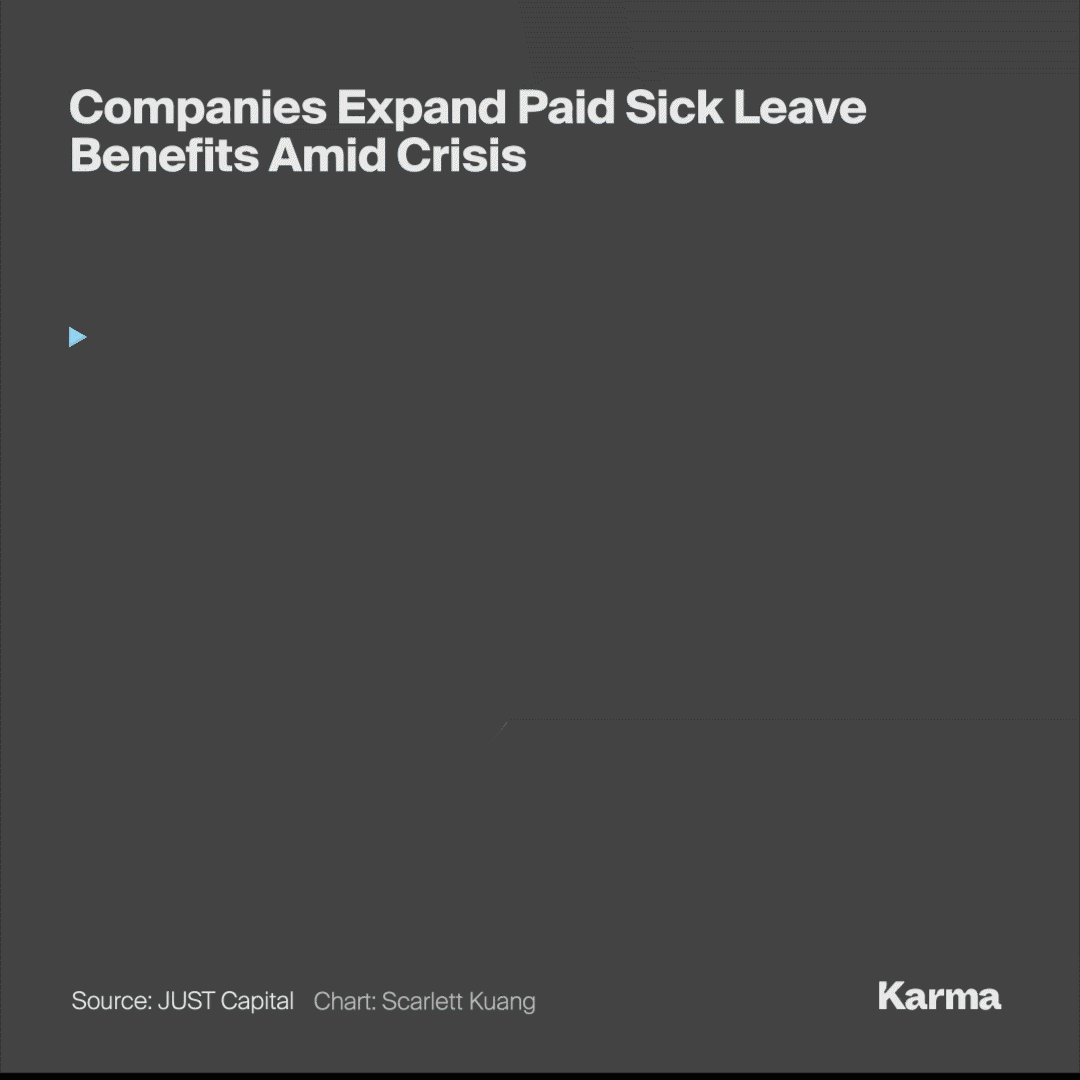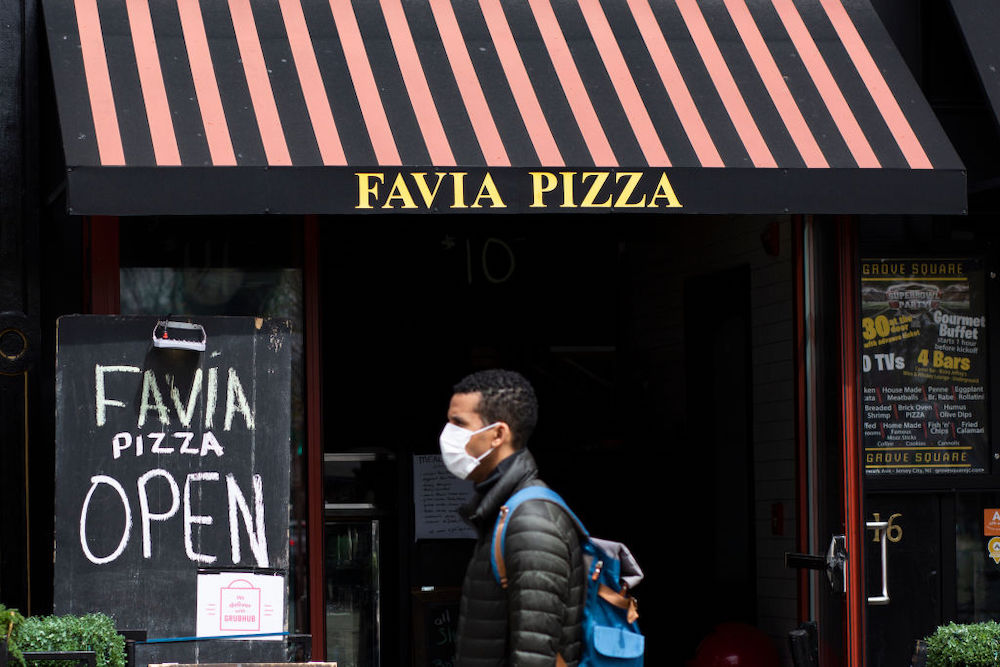- Amid an unprecedented health crisis, one-third of America’s top employers have expanded their paid sick leave policies — in some cases offering the benefit to workers for the first time.
- With 24% of Americans without access to paid sick leave, the crisis presents an opportunity for companies to improve fair labor practices and for impact investors to support those efforts.
- The question that remains is whether companies will continue to prioritize worker benefits after the pandemic ends.
When many hourly restaurant workers get sick, they have two choices: Forgo pay by staying home or risk infecting coworkers and customers. However, that harsh reality for the 24% of American workers without access to paid sick leave is changing because of the COVID-19 pandemic, at least for the time being.
“These are extraordinary times,” Alison Omens, chief strategy officer of JUST Capital, which gathered the data on paid sick leave, told Karma. “Everybody is throwing the playbook out the window. There is an interest and willingness to be thinking about things differently in a way that is just harder when things are going smoothly.”
So far in the crisis, more than one-third of America’s top 100 employers have expanded their paid sick leave policies.

Darden Restaurants, the owner of Olive Garden and Longhorn Steakhouse, announced last month that it would provide paid sick leave to all 190,000 of its employees. Verizon has increased standard sick leave to 40 days, while individuals medically diagnosed with COVID-19 can take up to 26 weeks off.
That’s just one way that corporations are rethinking worker benefits amid the crisis. Omens said more companies are reaching out to the nonprofit JUST Capital — whose mission is to help companies improve how they serve all stakeholders including workers, customers, communities, the environment and shareholders — with a willingness to reevaluate long-entrenched policies.
Flexible work is also becoming more common as many employees juggle working from home with personal responsibilities. As multiple states announced last week that schools will remain closed for the remainder of the academic year, Microsoft made waves by announcing that it would offer 12 weeks of parental leave to all employees.
These private-sector initiatives are important because the vast majority of America’s workers are employed by companies with over 500 employees, which are exempt from a new federal requirement that requires that workers get two weeks of sick leave as well as parental leave to watch children home from school amid closures. Some states, including New York, are now requiring employers to provide leave.
The crucial test will be whether companies keep expanded policies in place after the pandemic subsides. Even before the crisis, worker benefits and work-life balance were a top concern for Americans, according to a 2019 JUST Capital survey.
“The thing people care most about is how companies treat their workforce,” Omens said, noting that paid sick leave is a key part of that conversation. While Omens acknowledged that such policies come at a cost to employers, she said there are long-term savings associated with a more loyal and committed workforce and the value of having satisfied employees.
The improved benefits are a sliver of good news for American workers amid widespread layoffs and economic uncertainty. Many of the low-wage workers who lack access to paid sick leave work in industries such as hospitality and retail, which have also been hardest hit by current lockdowns. In the week ending on April 4, 6.6 million people applied for unemployment, according to the Department of Labor.
So far, Darden is one of the few employers that has made its adjusted sick leave permanent. Last week, however, the restaurant group furloughed many hourly workers and gave others pay cuts. Senior leaders saw a 50% pay reduction, with President and CEO Gene Lee forgoing his salary amid the crisis.
“It is this shared sacrifice that will make us stronger,” he said in a statement.
Photo by Kena Betancur/Getty Images






















